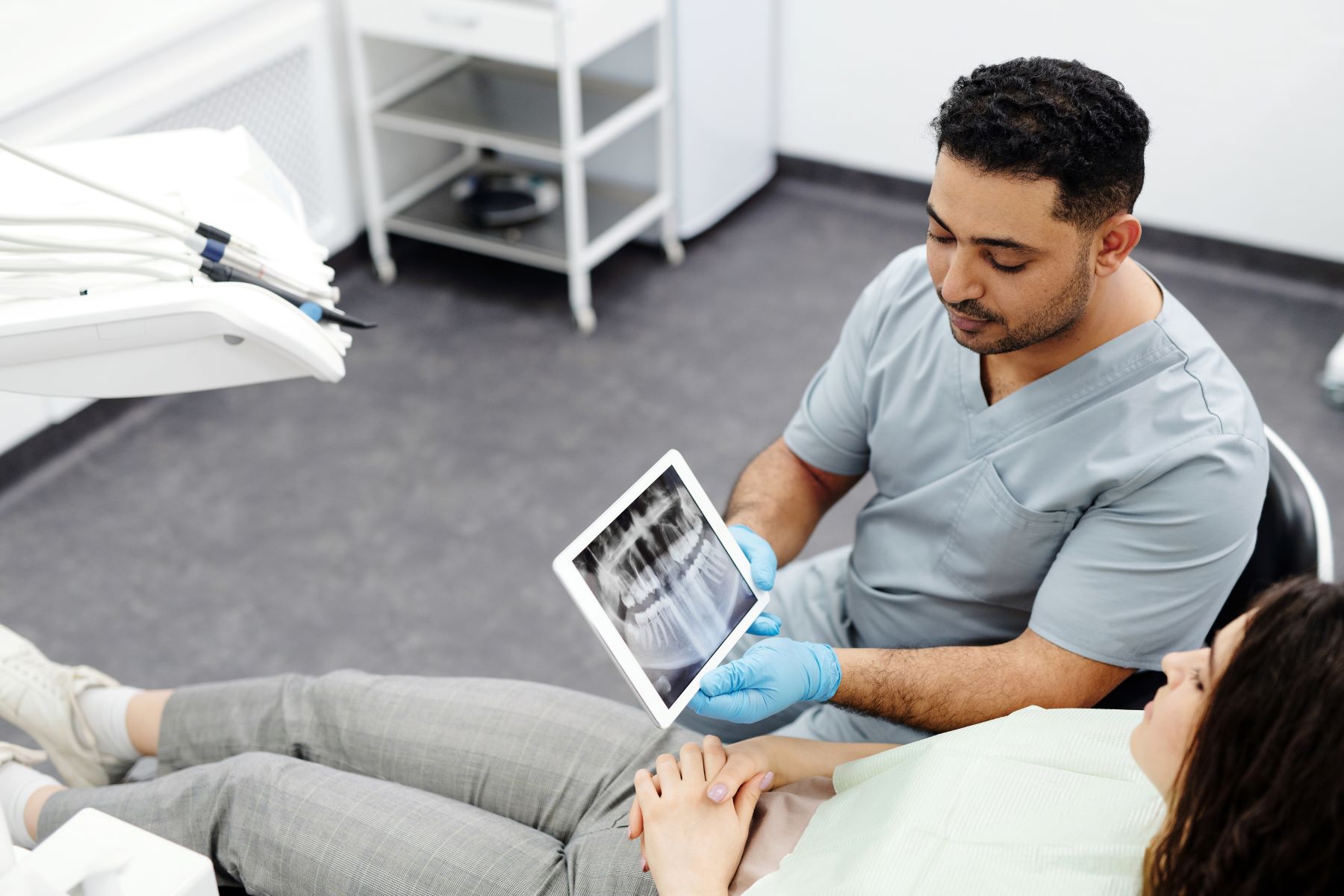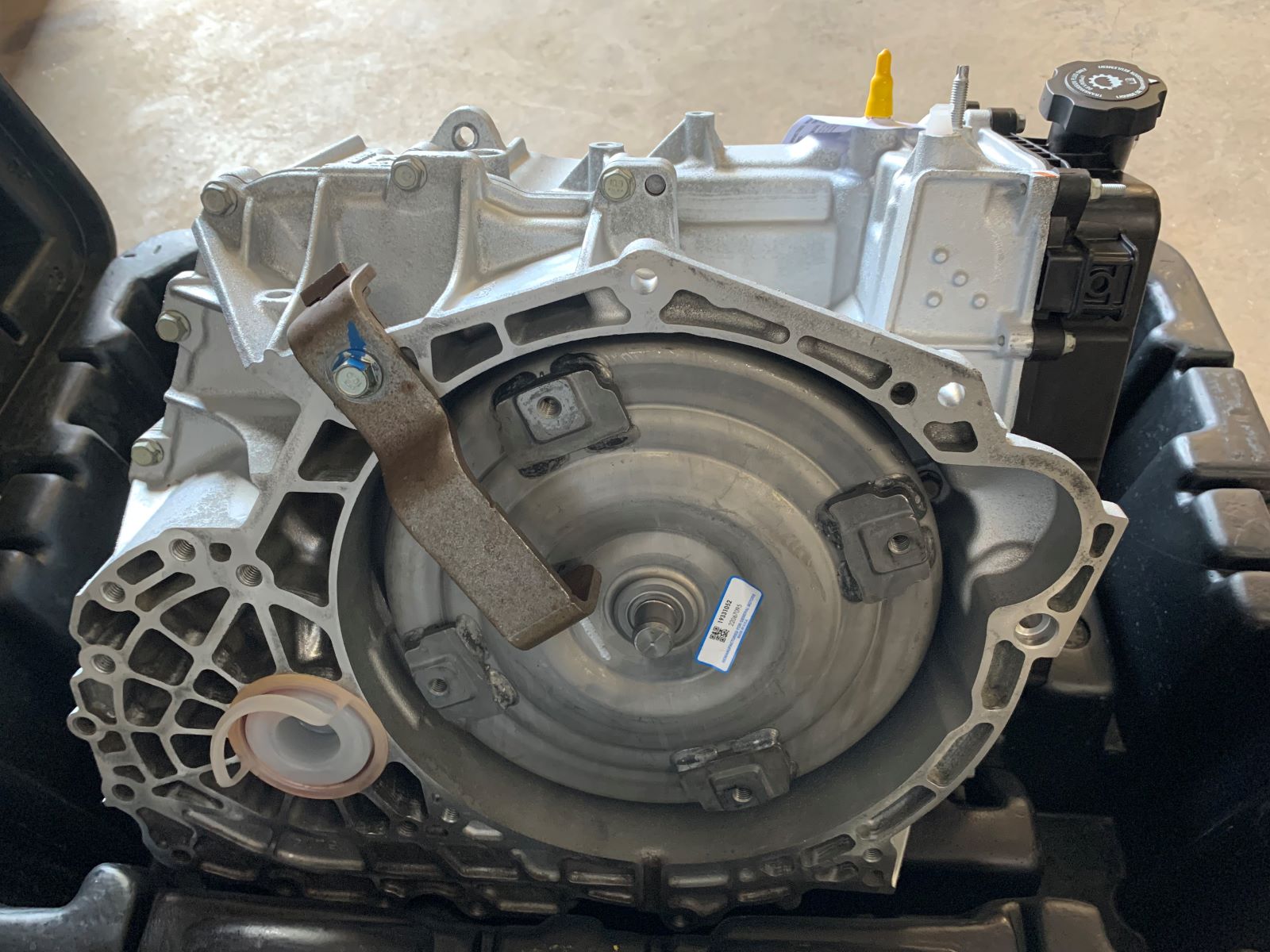Home>Parenting and Children>5 Tips To Prevent Dental Emergencies With Your Kids


Parenting and Children
5 Tips To Prevent Dental Emergencies With Your Kids
Published: January 7, 2024
Discover 5 essential tips for parents to prevent dental emergencies with their kids. Learn how to promote good oral hygiene and prevent common dental issues. Ideal for parents seeking guidance on parenting and children.
(Many of the links in this article redirect to a specific reviewed product. Your purchase of these products through affiliate links helps to generate commission for Regretless.com, at no extra cost. Learn more)
Table of Contents
Introduction
As a parent, ensuring the well-being of your children is always a top priority. When it comes to their health, dental care plays a crucial role in their overall wellness. Dental emergencies can be distressing for both children and parents, often resulting in pain, anxiety, and inconvenience. However, with the right preventive measures in place, the likelihood of encountering such emergencies can be significantly reduced.
In this article, we will explore five essential tips to help parents prevent dental emergencies with their kids. From regular dental check-ups to promoting proper oral hygiene habits and monitoring eating behaviors, each tip is designed to empower parents with the knowledge and tools needed to safeguard their children's dental health. By implementing these proactive strategies, parents can minimize the risk of dental emergencies and instill lifelong habits that contribute to their children's overall well-being. Let's delve into these tips to discover how simple yet impactful actions can make a significant difference in preventing dental emergencies and promoting healthy smiles for children.
Read more: 5 Tips For Handling An Older Autistic Child
Tip 1: Encourage Regular Dental Check-ups
Regular dental check-ups are a cornerstone of preventive dental care for children. By scheduling and prioritizing these appointments, parents can stay ahead of potential dental issues and ensure that their children's oral health is consistently monitored and maintained. These routine visits to the dentist offer a proactive approach to identifying and addressing any emerging concerns before they escalate into dental emergencies.
During these check-ups, the dentist conducts a comprehensive examination of the child's teeth, gums, and overall oral cavity. This allows for the early detection of any dental issues such as cavities, misalignments, or signs of gum disease. Additionally, the dentist can provide professional cleanings to remove plaque and tartar, which are essential for preventing tooth decay and maintaining optimal oral health.
Moreover, regular dental check-ups serve as an educational opportunity for both children and parents. Dentists can impart valuable knowledge regarding proper oral hygiene practices, dietary recommendations for healthy teeth, and the importance of consistent dental care routines. By engaging in open discussions with the dentist, children can gain a deeper understanding of the significance of oral health, empowering them to take ownership of their dental well-being.
Furthermore, these visits foster a positive and familiar relationship between the child and the dental care provider. This can help alleviate any potential fear or anxiety associated with dental appointments, creating a more comfortable and reassuring experience for the child. When children feel at ease during dental visits, they are more likely to develop a positive attitude towards oral care, which can have long-lasting benefits for their dental health.
In essence, by encouraging regular dental check-ups for children, parents are proactively investing in their oral health and well-being. These appointments not only enable early detection and intervention for any dental issues but also serve as educational and comforting experiences that contribute to a lifetime of healthy smiles. Therefore, prioritizing and advocating for regular dental check-ups is a fundamental step in preventing dental emergencies and nurturing a positive approach to dental care in children.
Tip 2: Teach Proper Oral Hygiene Habits
Proper oral hygiene habits are foundational for maintaining healthy teeth and gums, and instilling these practices in children from an early age sets the stage for a lifetime of dental wellness. As a parent, serving as a role model and educator in this regard is paramount. By imparting essential oral hygiene habits to your children, you equip them with the knowledge and skills needed to care for their teeth and gums effectively.
Establish Consistent Brushing and Flossing Routines
Teaching children the importance of regular brushing and flossing is pivotal in preventing dental issues. Encourage them to brush their teeth at least twice a day using fluoride toothpaste, emphasizing the significance of thorough cleaning to remove plaque and food particles. Additionally, introduce the habit of flossing to reach areas between the teeth that brushing alone may not effectively clean. By establishing these routines early on, children develop a strong foundation for maintaining oral hygiene as they grow.
Demonstrate Proper Brushing Techniques
While teaching the importance of brushing, it's equally crucial to demonstrate proper brushing techniques to children. Show them how to hold the toothbrush at a slight angle and use gentle, circular motions to clean all tooth surfaces. Emphasize the need to brush the tongue and roof of the mouth to eliminate bacteria and freshen breath. By visually demonstrating these techniques, children can better understand and replicate effective brushing practices.
Promote Healthy Dietary Choices
In addition to oral care routines, educating children about the impact of their dietary choices on dental health is essential. Encourage the consumption of tooth-friendly foods such as fruits, vegetables, and dairy products, while emphasizing the moderation of sugary snacks and beverages. By promoting a balanced and nutritious diet, parents can contribute to their children's overall oral health, reducing the risk of tooth decay and gum disease.
Emphasize the Importance of Regular Dental Check-ups
Teaching proper oral hygiene habits also involves highlighting the role of regular dental check-ups in maintaining healthy smiles. Emphasize to children that dental visits are not just for addressing problems but are integral in preventing issues and ensuring their teeth and gums remain in optimal condition. By instilling the value of proactive dental care, children are more likely to prioritize their oral health and recognize the significance of regular check-ups.
By actively teaching and reinforcing proper oral hygiene habits, parents play a pivotal role in equipping their children with the tools and knowledge needed to maintain healthy smiles. Through consistent guidance, demonstration, and encouragement, children can develop lifelong habits that contribute to their overall well-being, empowering them to prevent dental emergencies and enjoy the benefits of excellent oral health.
Tip 3: Monitor Eating Habits
Children's eating habits play a significant role in their dental health. As a parent, being mindful of what your children consume can greatly impact their oral well-being. Monitoring their eating habits involves not only the types of foods they consume but also the frequency and timing of their meals and snacks.
Encouraging a Balanced Diet
Promoting a balanced diet that includes a variety of nutrient-rich foods such as fruits, vegetables, lean proteins, and whole grains is essential for overall health, including dental wellness. These foods provide essential vitamins and minerals that support strong teeth and gums. Additionally, incorporating calcium-rich foods like dairy products and leafy greens can contribute to the development and maintenance of healthy teeth.
Limiting Sugary and Acidic Foods
While it's important to encourage a diverse range of foods, it's equally crucial to limit the consumption of sugary and acidic foods and beverages. Sugary snacks and drinks can contribute to tooth decay and enamel erosion, increasing the risk of dental issues. Monitoring and regulating the intake of these items, especially between meals, can help mitigate potential harm to the teeth.
Promoting Hydration and Water Intake
Encouraging children to drink water throughout the day supports their overall health and helps maintain proper saliva production. Saliva plays a crucial role in neutralizing acids in the mouth and rinsing away food particles, contributing to a healthier oral environment. By promoting adequate hydration, parents can support their children's oral health while instilling a beneficial hydration habit.
Emphasizing Meal and Snack Timing
In addition to the types of foods consumed, the timing of meals and snacks can impact dental health. Encourage structured meal and snack times, allowing an adequate break between eating occasions. This practice reduces the frequency of exposure to acids and sugars, giving the teeth a chance to recover and minimizing the risk of dental issues.
By monitoring children's eating habits and promoting a well-rounded diet while limiting sugary and acidic foods, parents can significantly contribute to their children's dental health. These proactive measures, combined with regular dental check-ups and proper oral hygiene practices, form a comprehensive approach to preventing dental emergencies and fostering long-term oral wellness.
Tip 4: Promote the Use of Protective Gear
Promoting the use of protective gear is a crucial aspect of preventing dental emergencies in children. Whether they are engaging in sports activities or participating in recreational pursuits, safeguarding their teeth and mouth with appropriate protective gear is essential for minimizing the risk of dental injuries.
Emphasizing the Importance of Mouthguards
Mouthguards are invaluable in shielding the teeth, gums, and soft tissues of the mouth from potential impact and trauma during physical activities. Encouraging children to wear custom-fitted mouthguards while participating in sports such as football, basketball, soccer, and martial arts can significantly reduce the likelihood of dental injuries. By promoting the consistent use of mouthguards, parents can provide an added layer of protection for their children's oral health, mitigating the potential for dental emergencies resulting from sports-related accidents.
Educating on Proper Helmet Usage
In activities that involve cycling, skateboarding, or rollerblading, the use of helmets is paramount for overall safety, including dental protection. Parents should emphasize the importance of wearing helmets that fit properly and securely, ensuring that they provide adequate coverage to safeguard the head and face. By educating children on the significance of helmet usage, parents can instill a safety-conscious mindset, reducing the risk of head and facial injuries, including those affecting the teeth and mouth.
Encouraging Safety Practices in Recreational Settings
Apart from organized sports and physical activities, children often engage in recreational pursuits such as playground games and outdoor adventures. Promoting safety practices in these settings, including the use of protective gear such as helmets and mouthguards, reinforces the importance of proactive injury prevention. By instilling these habits, parents empower their children to prioritize their well-being and minimize the potential for dental emergencies resulting from unforeseen accidents or impacts.
Fostering a Culture of Prevention
By actively promoting the use of protective gear, parents contribute to fostering a culture of prevention and safety awareness in their children. This proactive approach not only safeguards their dental health but also instills a sense of responsibility and mindfulness when engaging in physical activities. Through consistent encouragement and reinforcement, the use of protective gear becomes an integral part of children's routines, significantly reducing the risk of dental emergencies and promoting a safer and more secure environment for their overall well-being.
Incorporating protective gear into children's activities is a proactive measure that aligns with the goal of preventing dental emergencies. By prioritizing the use of mouthguards, helmets, and other appropriate protective equipment, parents can provide their children with an added layer of defense, contributing to a safer and more secure approach to physical pursuits.
Tip 5: Educate on Dental Emergency Procedures
Educating children about dental emergency procedures is a critical aspect of equipping them with the knowledge and readiness to handle unexpected oral health incidents. By instilling an understanding of how to respond to dental emergencies, parents empower their children to act swiftly and appropriately in potentially distressing situations, thereby minimizing the impact of the emergency and facilitating timely intervention.
Familiarizing Children with Common Dental Emergencies
Children should be made aware of the common types of dental emergencies, including toothaches, broken or knocked-out teeth, and injuries to the soft tissues of the mouth. By familiarizing them with these scenarios, parents can help alleviate fear and anxiety by providing a sense of preparedness and understanding.
Demonstrating First-Aid Techniques
Parents should educate their children on basic first-aid techniques for dental emergencies. This includes demonstrating how to handle a toothache, manage bleeding from the mouth, and care for a knocked-out tooth. By visually illustrating these procedures, children can better comprehend and retain the information, enabling them to respond effectively if they or someone else experiences a dental emergency.
Role-Playing Scenarios
Engaging in role-playing exercises can be an effective method to reinforce children's understanding of dental emergency procedures. By simulating various emergency scenarios, parents can guide their children through the appropriate steps to take, fostering a sense of confidence and preparedness. This interactive approach can make learning about dental emergencies more engaging and memorable for children.
Creating a Dental Emergency Kit
As part of the education process, parents can involve their children in assembling a dental emergency kit. This kit can include items such as gauze, a small container for preserving a knocked-out tooth, and the contact information for the family dentist. By involving children in this activity, they not only gain practical knowledge but also feel a sense of ownership and responsibility in preparing for potential emergencies.
Reinforcing the Importance of Seeking Professional Help
While empowering children with basic first-aid knowledge is valuable, it is equally crucial to emphasize the importance of seeking professional dental care in the event of an emergency. Parents should communicate the significance of promptly contacting a dentist or seeking medical assistance when faced with a dental emergency, underscoring the role of professionals in providing the necessary treatment and care.
By educating children on dental emergency procedures, parents play a vital role in equipping their children with the confidence and skills to navigate unexpected oral health challenges. This proactive approach not only prepares children to respond effectively to dental emergencies but also instills a sense of empowerment and resilience, contributing to their overall well-being and dental health.











